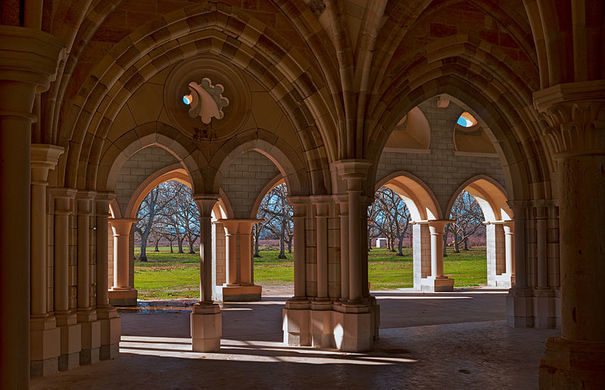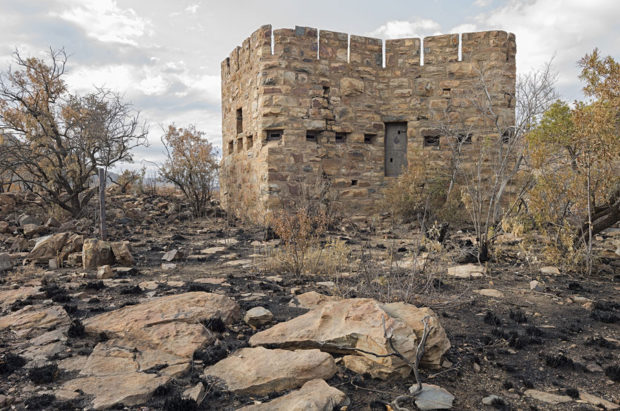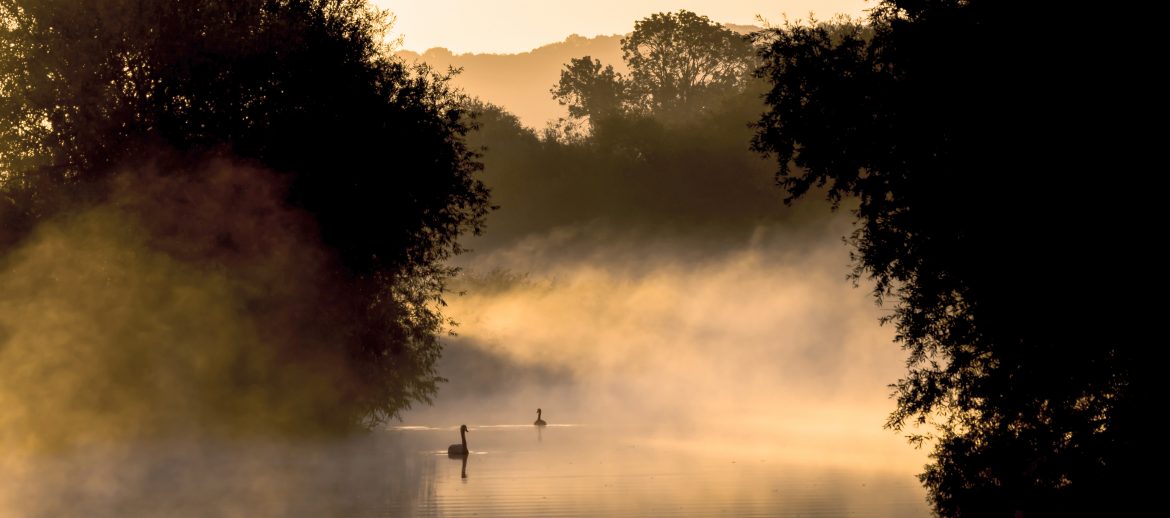The days seem much shorter now since the time change last weekend. But I make it out for a meditation at streamside before mid-afternoon in time to see and be in the remaining fullness of today’s light.
A maple tree in the picnic area across the creek holds the sunlight and color for three-quarters of an hour, and then the upper branches of a sycamore upstream are bathed in a golden glow.
As the mind-as-thought spontaneously falls silent in passive watchfulness growing into undirected attention, essences became apparent.
Large leaves fall to the stream in a perpetual dance of perpendicular and horizontal motion. The trajectory of nature’s geometry is written on the heart. Above the stream, the character of every person that passes on the pedestrian park road appears equally clear.
 The hardest thing is to live in the world in a state of negation. Why is this? If the intrinsic intent of the universe is to evolve brains with the capacity to commune with Mind, why is higher thought, which gave the human brain the neural potential for cosmic consciousness, such an impediment to its realization?
The hardest thing is to live in the world in a state of negation. Why is this? If the intrinsic intent of the universe is to evolve brains with the capacity to commune with Mind, why is higher thought, which gave the human brain the neural potential for cosmic consciousness, such an impediment to its realization?
As a young man, I didn’t understand why people lived the monastic life, but I do now, though I still have no urge to live in a monastery. The maxim of the monastery near here, New Clairvaux, is “God alone.” That’s not only the core intent of the Trappist monks in their daily life of prayer and tending to the vineyards; it’s a renunciation of the world.
Thomas Merton, who is the patron monk of the Trappists (though he never visited New Clairvaux), said, “To enter into the realm of contemplation, one must in a certain sense die: but this death is in fact the entrance into a higher life. It is a death for the sake of life, which leaves behind all that we can know or treasure as life, as thought, as experience.”
Of course Jesus said the same thing, more succinctly, “Whoever seeks to preserve his life will lose it, but whoever loses his life will keep it.”
Merton also said, “Do not look for rest in any pleasure, because you were not created for pleasure: you were created for spiritual joy. And if you do not know the difference between pleasure and spiritual joy you have not yet begun to live.”
These insights, and the imperative of having an inner life in such dark times, don’t require entering a monastery, or even going on retreat (for which an entire industry has emerged in the last 20 years). Perhaps it’s easier to make contemplative insight and communion with the immanence of God the cornerstone of your life in a monastery, but I doubt it.
Both Jesus and Merton were speaking of psychological death, the end of all we know, indeed of the known itself. And in my meditative experiencing, it is only when I die completely to the known, to the ‘me’ and its desire to become, that I truly know completeness, freedom and peace.
Even so, to be a contemplative in the world, outside a monastery, is a strange thing, sometimes feeling like having the worst of both worlds. But despite how popular monasteries have become to the secular, the seeking, and the so-called spiritual, I question their necessity and relevance in our age.
Clearly the ancient riddle of man has come to a head like never before, even though people like to take comfort in the errors of the past, ignoring the ecological limits of man’s stupidity by saying, ‘people have always thought it was the end of the world.’
of the past, ignoring the ecological limits of man’s stupidity by saying, ‘people have always thought it was the end of the world.’
I don’t believe in the end of the world. Worlds come and go, as do ages and empires. This world can continue to go to hell. The fate of humanity, spiritually speaking, is what’s in question.
Thought, the intellect, is the pride of man. Though the intellect is maker of all knowledge, architecture and art, it must fall completely silent for the otherness to be. Then, when there is no trace of a goal, no movement of any kind, there is a silence that is akin to death, and the sacred comes.
This benediction cannot be sought, and any idea or memory of a previous experience of it precludes it from coming again in the present. This seems almost too high a bar for even contemplatively inclined human beings to clear.
So is the cosmic mind indifferent to the fate of humanity, and is directed only to the individual brain ending thought and thereby bringing the benediction? Or is it both, with the individual bringing the benediction first?
Our age appears hopeless, but the greater the man-made darkness, the more clear and brilliant the infinite light when one breaks through.
Martin LeFevre

